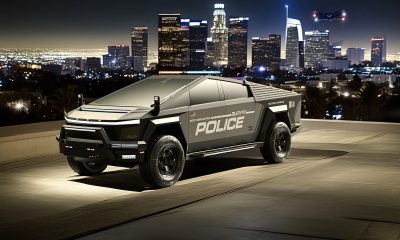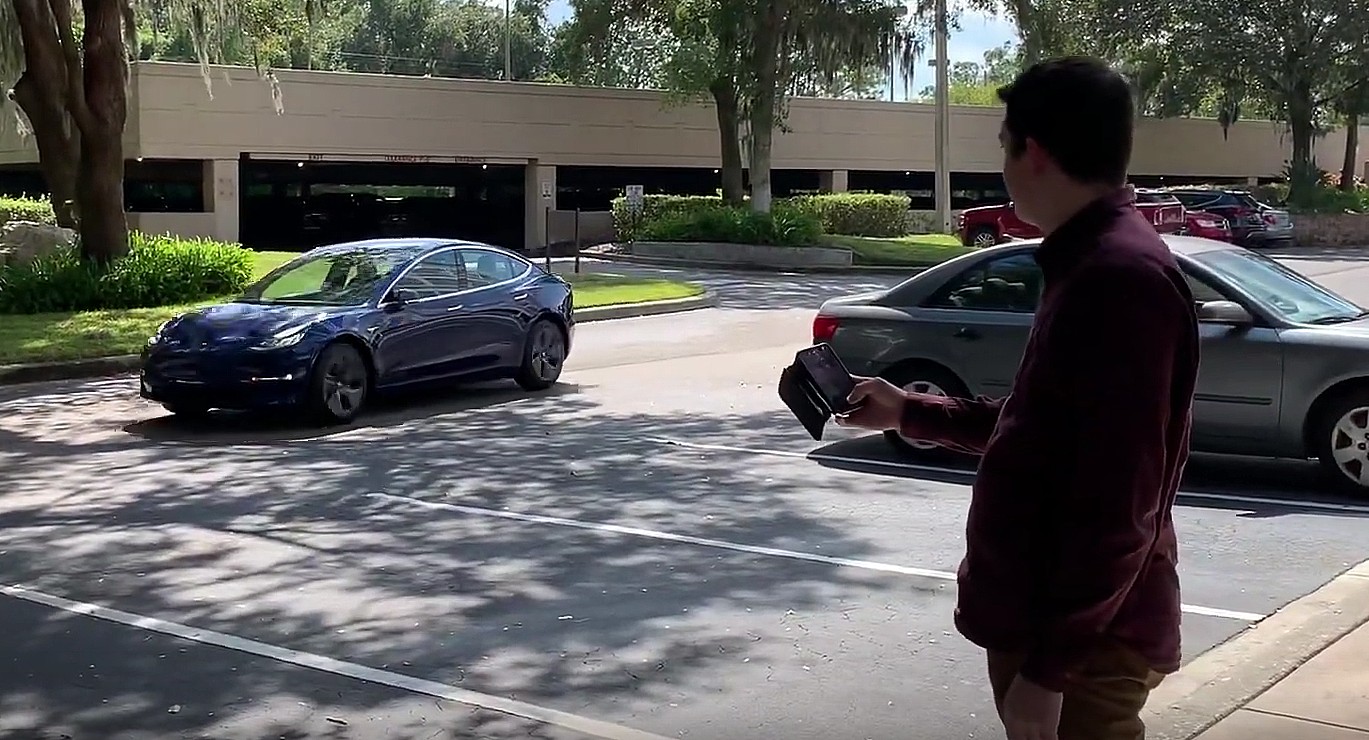

Lifestyle
Smart Summon is here! And so is the FUD. Should Tesla do anything about it?
Welcome to a FREE preview of our weekly exclusive! Each week our team goes ‘Beyond the News’ and handcrafts a special edition that includes our thoughts on the biggest stories, why it matters, and how it could impact the future.
You can receive this newsletter along with all of our other members-exclusive newsletters, become a premium member for just $3/month. Your support goes a long way for us behind the scenes! Thank you.
—
Tesla’s Smart Summon is out on beta release and, as expected from videos previously published by Early Access Program participants, it’s still learning how to be as amazing as it hopes to eventually be.
Hands down, the feature is ridiculously cool and (dare I say it) finally delivering on some of the sci-fi movie promises over the decades that dangled sans-human, self-driving cars in front of our imaginations. However, Smart Summon is also being birthed into a somewhat hostile media environment that has a vendetta against its maker, particularly its CEO. Perhaps a college psychology class could (or has already) taken a dive into why people like Elon Musk inspire so much detraction and (dare I say this as well) “fake news.” But, regardless of what causes the disease, the symptoms are what they are. Have a look at this NBC Today Show headline from a segment they did and published on YouTube:
“Tesla’s Smart Summon Feature Is Causing Parking Lot Chaos.”
I hate to be a whattabout-ist, but I could do a similar video every time Microsoft forces some sort of mandatory update to my Outlook email program. “But, that’s not the same as a car hitting a person!” one might cry. Au contraire, my friend. Whereas Smart Summon is a beta release and users are warned to monitor their car’s activity using the feature, i.e., the human in charge is ultimately responsible for any bad actions just as if they were behind the wheel, Microsoft’s updates are not beta releases and impact businesses, governments, and even emergency services worldwide. The old ‘follow the money’ phrase isn’t just for political foes. If Microsoft screws up someone’s ability to do their job, someone, somewhere, could be suffering.
Does this seem silly? I hope so, because it’s supposed to be silly.
You wouldn’t hold Microsoft responsible for a family’s financial difficulties because an administrator at an insurance company missed an email about their claim thanks to some update to their Outlook that screwed up their organizational system. So, then, why do the media try to hold Tesla (and Musk) responsible for a Smart Summon user that’s not paying attention and lets their car run into a curb or cross a street with active traffic, requiring emergency braking to avoid an accident?
Honestly, those in the Tesla community already know the answer. Aside from making sensational headlines (this is also common with Autopilot-involved accidents), there are interest groups and individuals who actively cheer Tesla’s failure. I can only understand (not condone) the groups that benefit from it financially in one way or another via Wall Street, but the rest is beyond me. Perhaps it’s political, and perhaps that’s just going to be something Tesla will always deal with as part of its politically-tied mission. For what it’s worth, I do understand politics, but I don’t understand cheering the collapse of something that consumers find desirable in the marketplace. But, I digress…
At the end of the day, one can fight against the Smart Summon headlines and become exhausted in the end, or one can focus on making the feature better. Which one can Tesla control? Which one can Tesla owners control? I think Gandhi is quoted a lot on this one – be the change you want to see in the world and so forth. Tesla’s community has a unique advantage in this problem, both because of how responsive Tesla is to its customers and via its frequent and unique over-the-air updates to its vehicle software.
Some Tesla drivers posting on Reddit have noted how huge amounts of data, to the tune of hundreds of megabytes and even gigabytes, have been uploaded to the company’s servers after using Smart Summon. Given that Smart Summon is in beta, this is a really good sign that Tesla is actively working to learn from as much data as it can as quickly as possible to improve the feature. As one part of the battle against negative headlines, if the feature merely fixes most of the indicated issues, there won’t be any issues to report.
Another set of comments I saw floating around on Reddit, other forums, and videos was whether Smart Summon should have communicative aspects while in beta to give a heads-up to other drivers and pedestrians to clear up any confusion in lieu of human driver language.
For instance, if a car stops for a pedestrian and the pedestrian isn’t sure of the car’s intentions, a human driver could wave them along. Not so with Smart Summon. There’s also the fear of a car moving without a driver that gives the impression it’s a runaway vehicle left in neutral gear. Some have suggested hazard lights be used while Smart Summon is activated, others have suggested specific noises or audio announcements. Non-verbal communication is tough, even for humans, so would updates like these help Smart Summon integrate better with humans that aren’t yet accustomed to autonomous cars? Personally, I know I pay attention to the loud beeps coming from a truck that’s reversing, but they are annoying albeit rare.
I’m not so sure overall, but I think it’s at least worth a try.
Lifestyle
EV fans urge Tesla to acquire Unplugged Performance for edge in fleet and security industry
Unplugged Performance has built a name for itself by producing performance upgrades for Tesla vehicles.
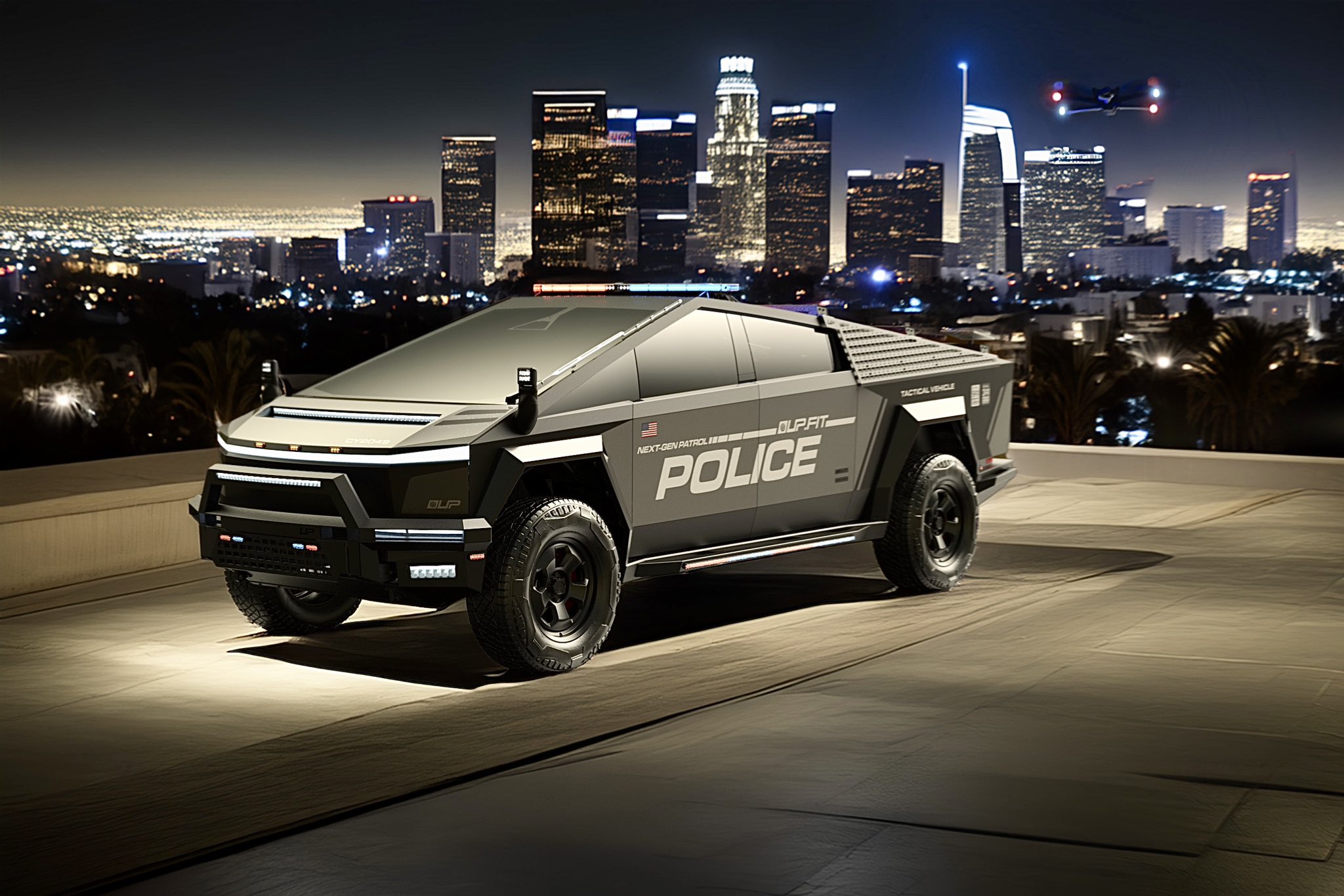
A growing number of Tesla enthusiasts and longtime community voices are calling on the electric vehicle maker to acquire Unplugged Performance, a California-based aftermarket company best known for tuning Tesla vehicles and developing specialized government fleet solutions under its UP.FIT division.
The idea was once considered a niche proposal among EV fans, but it is now gaining serious attention not just as a performance play but as a strategic move to deepen Tesla’s roots in the fleet and security industry.
A strategic fit
Unplugged Performance has built a name for itself by producing performance upgrades for Tesla vehicles, from track-optimized components to visual and aerodynamic upgrades. But in recent years, its UP.FIT division has pivoted toward a more functional future by outfitting Tesla vehicles like Model Ys for police, military, and government use.
That work has sparked growing calls for closer collaboration with Tesla, especially as the EV maker increasingly leans into autonomy, AI, and fleet services as core components of its next chapter.
“I posted this four years ago, but I think it’s more true now than ever,” wrote Whole Mars Catalog, a well-known Tesla investor and FSD Beta tester, on X. “Tesla should buy Unplugged. But not just as a Performance division. What they are doing with UP.FIT unlocks large government and commercial fleet purchases that can improve utilization.”
Tesla fans such as shareholder Sawyer Merritt echoed the sentiment, calling Unplugged a “great fit within Tesla.” adding, “They are literally located directly next to Tesla’s design studio in Hawthorne.”
Enabling the next wave
Supporters of the idea noted that integrating Unplugged into Tesla’s corporate structure could help accelerate the adoption of autonomous technologies in government sectors. With UP.FIT patrol cars already in use across some U.S. police departments, Tesla fans envisioned a future where self-driving Teslas could potentially revolutionize law enforcement, search-and-rescue, and public service logistics.
“Just imagine how autonomous patrol cars could transform policing and bring us into a safer future,” the veteran FSD tester wrote.
The benefits could also extend to Tesla’s existing consumer base. “They also have some incredible products in the works that I think will appeal to many ordinary Tesla drivers — not just those looking for performance or mods. Stuff that’s so good it should have come straight from the design studio next door,” Whole Mars Catalog noted.
Unplugged Performance, founded in 2013, shares not just a product vision with Tesla, but also geography. Its Hawthorne headquarters sits directly adjacent to Tesla’s design studio, and the two companies have maintained a close working relationship over the years. The aftermarket firm has long positioned itself as a “mission-aligned” partner to Tesla.
In response to the recent calls for acquisition, Unplugged Performance acknowledged the support from the community. “Our very existence is to support the Tesla mission with @UpfitTesla and @UnpluggedTesla,” Unplugged CEO Ben Schaffer posted on X. “We love working with Tesla and are grateful for the community’s support since 2013!”
Elon Musk
X account with 184 followers inadvertently saves US space program amid Musk-Trump row
Needless to say, the X user has far more than 184 followers today after his level-headed feat.
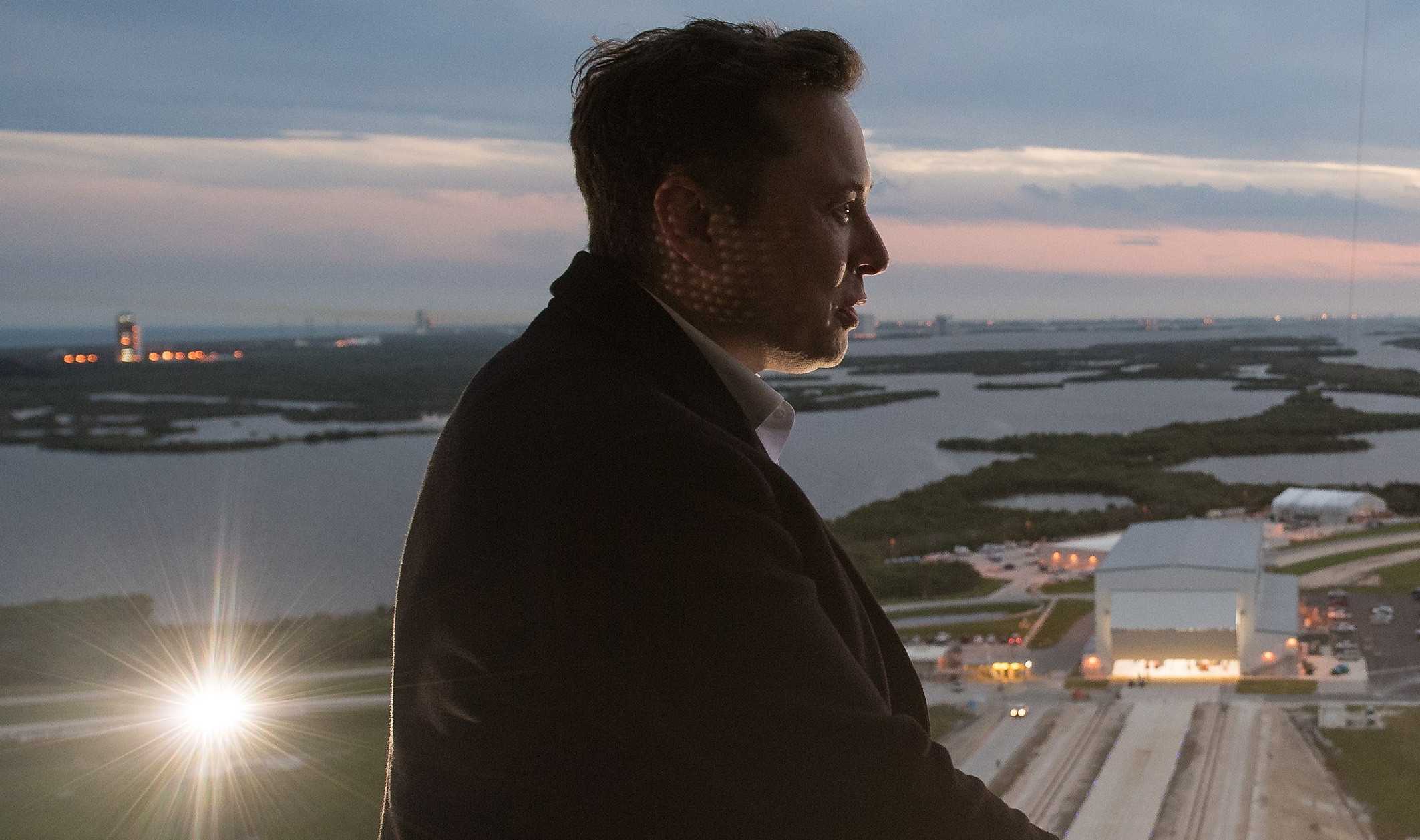
An X user with 184 followers has become the unlikely hero of the United States’ space program by effectively de-escalating a row between SpaceX CEO Elon Musk and President Donald Trump on social media.
Needless to say, the X user has far more than 184 followers today after his level-headed feat.
A Near Fall
During Elon Musk and Donald Trump’s fallout last week, the U.S. President stated in a post on Truth Social that a good way for the United States government to save money would be to terminate subsidies and contracts from the CEO’s companies. Musk responded to Trump’s post by stating that SpaceX will start decommissioning its Dragon spacecraft immediately.
Musk’s comment was received with shock among the space community, partly because the U.S. space program is currently reliant on SpaceX to send supplies and astronauts to the International Space Station (ISS). Without Dragon, the United States will likely have to utilize Russia’s Soyuz for the same services—at a significantly higher price.
X User to the Rescue
It was evident among X users that Musk’s comments about Dragon being decommissioned were posted while emotions were high. It was then no surprise that an X account with 184 followers, @Fab25june, commented on Musk’s post, urging the CEO to rethink his decision. “This is a shame this back and forth. You are both better than this. Cool off and take a step back for a couple days,” the X user wrote in a reply.
Much to the social media platform’s surprise, Musk responded to the user. Even more surprising, the CEO stated that SpaceX would not be decommissioning Dragon after all. “Good advice. Ok, we won’t decommission Dragon,” Musk wrote in a post on X.
Not Planned, But Welcomed
The X user’s comment and Musk’s response were received extremely well by social media users, many of whom noted that @Fab25june’s X comment effectively saved the U.S. space program. In a follow-up comment, the X user, who has over 9,100 followers as of writing, stated that he did not really plan on being a mediator between Musk and Trump.
“Elon Musk replied to me. Somehow, I became the accidental peace broker between two billionaires. I didn’t plan this. I was just being me. Two great minds can do wonders. Sometimes, all it takes is a breather. Grateful for every like, DM, and new follow. Life’s weird. The internet’s weirder. Let’s ride. (Manifesting peace… and maybe a Model Y.)” the X user wrote.
Lifestyle
Tesla Cybertruck takes a bump from epic failing Dodge Charger
The Cybertruck seemed unharmed by the charging Charger.
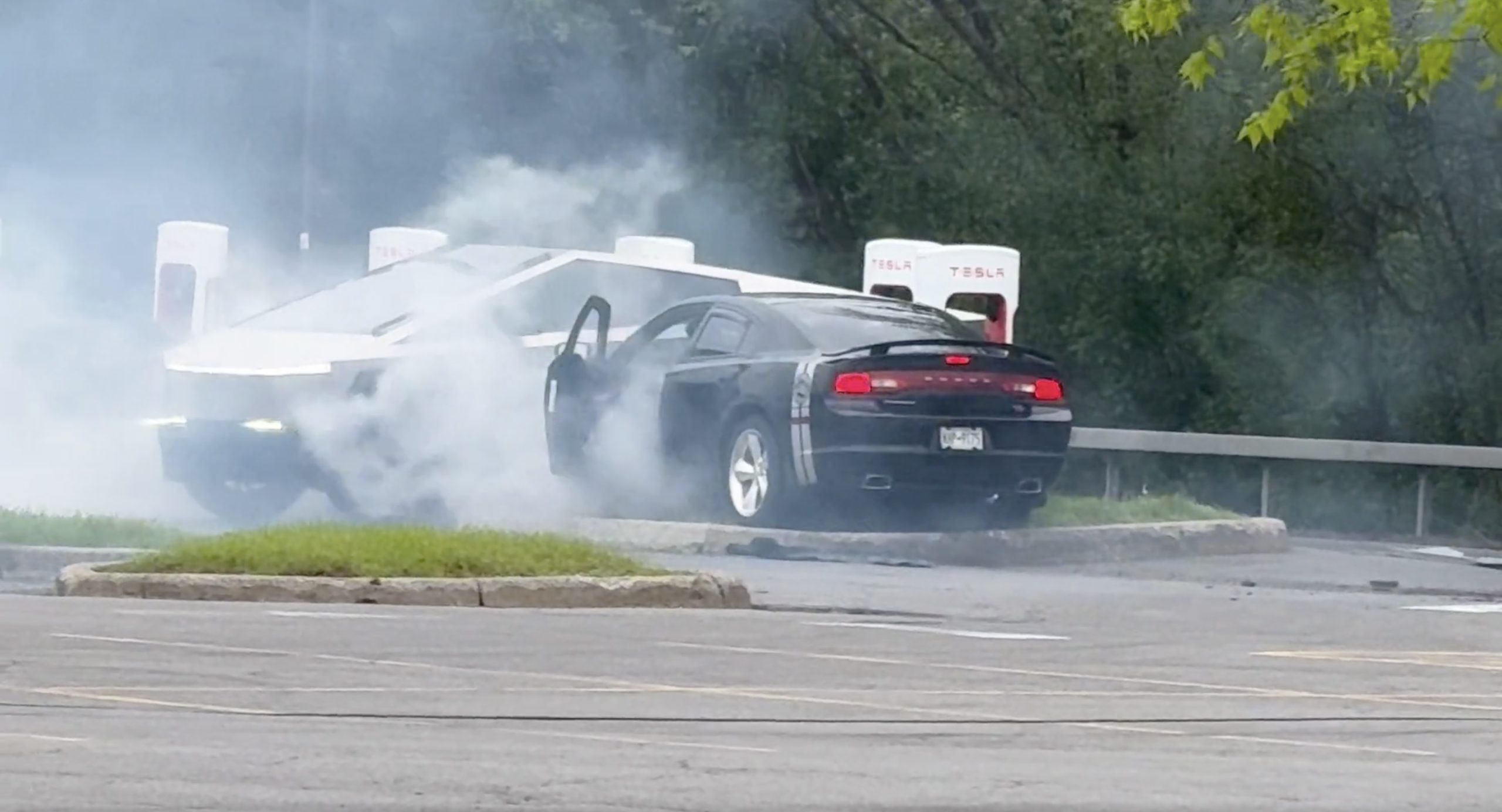
There comes a time in a driver’s life when one is faced with one’s limitations. For the driver of a Dodge Charger, this time came when he lost control and crashed into a Tesla Cybertruck–an absolute epic fail.
A video of the rather unfortunate incident was shared on the r/TeslaLounge subreddit.
Charging Charger Fails
As could be seen in the video, which was posted on the subreddit by Model Y owner u/Hammer_of_something, a group of teens in a Dodge Charger decided to do some burnouts at a Tesla Supercharger. Unfortunately, the driver of the Charger failed in his burnout or donut attempt, resulting in the mopar sedan going over a curb and bumping a charging Cybertruck.
Ironically, the Dodge Charger seemed to have been parked at a Supercharger stall before its driver decided to perform the failed stunt. This suggests that the vehicle was likely ICE-ing a charging stall before it had its epic fail moment. Amusingly enough, the subreddit member noted that the Cybertruck did not seem like it took any damage at all despite its bump. The Charger, however, seemed like it ran into some trouble after crashing into the truck.
Alleged Aftermath
As per the the r/TeslaLounge subreddit member, the Cybertruck owner came rushing out to his vehicle after the Dodge Charger crashed into it. The Model Y owner then sent over the full video of the incident, which clearly showed the Charger attempting a burnout, failing, and bumping into the Cybertruck. The Cybertruck owner likely appreciated the video, in part because it showed the driver of the Dodge Charger absolutely freaking out after the incident.
The Cybertruck is not an impregnable vehicle, but it can take bumps pretty well thanks to its thick stainless steel body. Based on this video, it appears that the Cybertruck can even take bumps from a charging Charger, all while chilling and charging at a Supercharger. As for the teens in the Dodge, they likely had to provide a long explanation to authorities after the incident, since the cops were called to the location.
-

 Elon Musk2 weeks ago
Elon Musk2 weeks agoTesla investors will be shocked by Jim Cramer’s latest assessment
-

 Elon Musk3 days ago
Elon Musk3 days agoxAI launches Grok 4 with new $300/month SuperGrok Heavy subscription
-

 Elon Musk5 days ago
Elon Musk5 days agoElon Musk confirms Grok 4 launch on July 9 with livestream event
-

 News1 week ago
News1 week agoTesla Model 3 ranks as the safest new car in Europe for 2025, per Euro NCAP tests
-

 Elon Musk1 week ago
Elon Musk1 week agoxAI’s Memphis data center receives air permit despite community criticism
-

 News2 weeks ago
News2 weeks agoXiaomi CEO congratulates Tesla on first FSD delivery: “We have to continue learning!”
-

 News2 weeks ago
News2 weeks agoTesla sees explosive sales growth in UK, Spain, and Netherlands in June
-

 Elon Musk2 weeks ago
Elon Musk2 weeks agoTesla scrambles after Musk sidekick exit, CEO takes over sales


